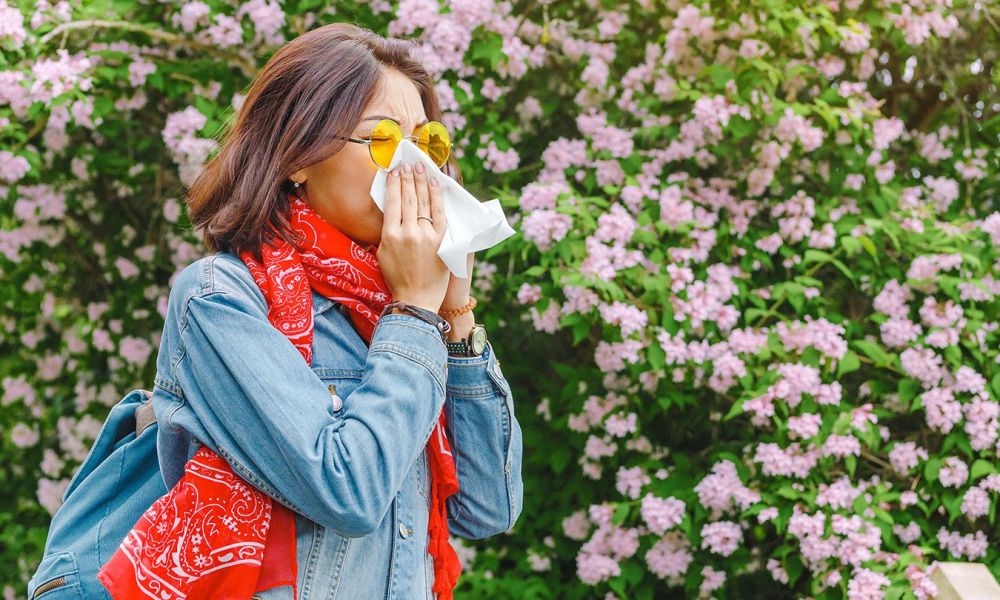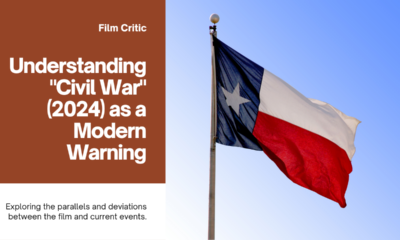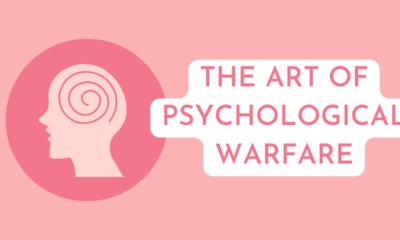Science
People with allergies have nearly 40% lower risk of getting COVID-19, UK study claims

A recent study conducted in the UK suggests that the overactive immune system associated with allergic diseases such as asthma and hay fever may have a positive side-effect in the form of greater protection from COVID-19 in the initial stages.
The 10-month study, involving around 15,000 people, was carried out between May 2020 and February of this year, and checked how many, and what kind of, respondents ended up getting COVID during the period.
The authors asked participants to provide information about their age, household circumstances, job, lifestyle, weight, height, longstanding medical conditions, medication use, vaccination status and diet and supplement intake upon enrollment in the study in an online questionnaire.
15,227 people, with the majority women and nearly 95% who identified their ethnic origin as White filled out at least one follow-up questionnaire and 14,348 people completed the final questionnaire. The average age of the participants was 59.
In total, 446 cases of coronavirus were recorded, or nearly 3% of participants. Thirty-two people were admitted to the hospital. Those with atopic diseases like eczema and those with hay fever or rhinitis had a 23% lower risk of contracting the disease.
Including people who suffer from asthma, there was a 38% lower risk of infection, even after accounting for the use of steroid inhalers. Contrary to past studies, the researchers found that older age, male sex and other underlying conditions were not linked to a higher risk of infection.
Terry A. Hurlbut has been a student of politics, philosophy, and science for more than 35 years. He is a graduate of Yale College and has served as a physician-level laboratory administrator in a 250-bed community hospital. He also is a serious student of the Bible, is conversant in its two primary original languages, and has followed the creation-science movement closely since 1993.
-

 Executive5 days ago
Executive5 days agoThe Hunters Have Now Become The Hunted: Their Cruelties Are Swelling The Ranks Of The People Worldwide!
-

 Clergy4 days ago
Clergy4 days agoWhy Do The American People Let The Corrupt Media & Politicians Set The Propaganda Narrative – Speak On Their Behalf
-

 Constitution5 days ago
Constitution5 days agoCHAPTER 9: Norman Dodd Interview Space Is No Longer the Final Frontier––Reality Is [upcoming release April 2024]
-

 Entertainment Today4 days ago
Entertainment Today4 days agoCivil War (2024) – an incomplete prediction
-
![CHAPTER 10: Objective Reality Is Required for a Free Society Space Is No Longer the Final Frontier—Reality Is [upcoming release May 2024]](https://cnav.news/wp-content/uploads/2024/04/Objective-reality-v-acceptance-400x240.png)
![CHAPTER 10: Objective Reality Is Required for a Free Society Space Is No Longer the Final Frontier—Reality Is [upcoming release May 2024]](https://cnav.news/wp-content/uploads/2024/04/Objective-reality-v-acceptance-80x80.png) Education4 days ago
Education4 days agoCHAPTER 10: Objective Reality Is Required for a Free Society Space Is No Longer the Final Frontier—Reality Is [upcoming release May 2024]
-

 Human Interest3 days ago
Human Interest3 days agoIdaho prepares to defend its abortion ban
-

 Civilization2 days ago
Civilization2 days agoEarth Day Should Celebrate U.S. Progress & Innovation
-

 Education2 days ago
Education2 days agoThe Intifada Comes to America. Now What?












